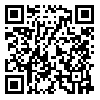Volume 4, Issue 1 (january 2020)
AOH 2020, 4(1): 485-492 |
Back to browse issues page
1- Human Environment and Sustainable Development Research Center, Najafabad Branch, Islamic Azad University, Najafabad, Iran
2- faculty of Health, dept. occupational Health and Ergonomics Safety Isfahan university of medical sciences , Habibi@hlth.mui.ac.ir
2- faculty of Health, dept. occupational Health and Ergonomics Safety Isfahan university of medical sciences , Habibi@hlth.mui.ac.ir
Abstract: (1571 Views)
Background: Musculoskeletal disorders are one of the major work-related diseases resulting from repetitive motions, awkward postures and exertion of excessive force on joints or an acute trauma. The present study was an attempt to determine the Prevalence and factors associated with Musculoskeletal Disorders among street cleaners of Isfahan Municipality. Methods: the present article is a cross-sectional causal-comparative study conducted on street cleaners of Isfahan Municipality. Cochran's formula was used to select 173 individuals as samples through convenience sampling. The data collection instrument was a researcher-made questionnaire covering demographic data (age, marital status, previous and current work experience, type of physical activity, work-related activity, height and weight of individuals, height and weight of tools, etc.) and specialized data (Nordic Self-Reporting Questionnaire). SPSS software and independent T-test were used to analyze the collected data. Results: 93% of street cleaners experienced musculoskeletal disorders in at least one organ over the past 12 months and factors associated with these disorders reportedly include occupational experience, age, marital status, height and weight of instrument, Body mass index and posture). The musculoskeletal disorders were found to be most prevalent in lower back (33%) and the shoulders (32.9%) and least prevalent in thighs (5%) over the past 12 months. Conclusion: The results showed that musculoskeletal disorders are highly prevalent in different parts of street cleaners’ body, and a variety of factors including work experience, age, marital status, tool height, tool weight, tool grip strength and posture are associated with that. The results also showed that correction of body movements and designing an ergonomic tool commensurate with the physical activity of street cleaners can prevent musculoskeletal disorders among them. .
| Rights and permissions | |
 |
This work is licensed under a Creative Commons Attribution-NonCommercial 4.0 International License. |




